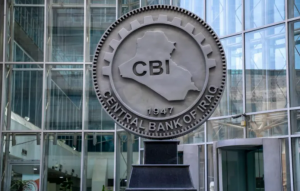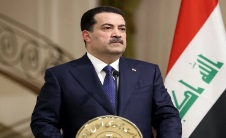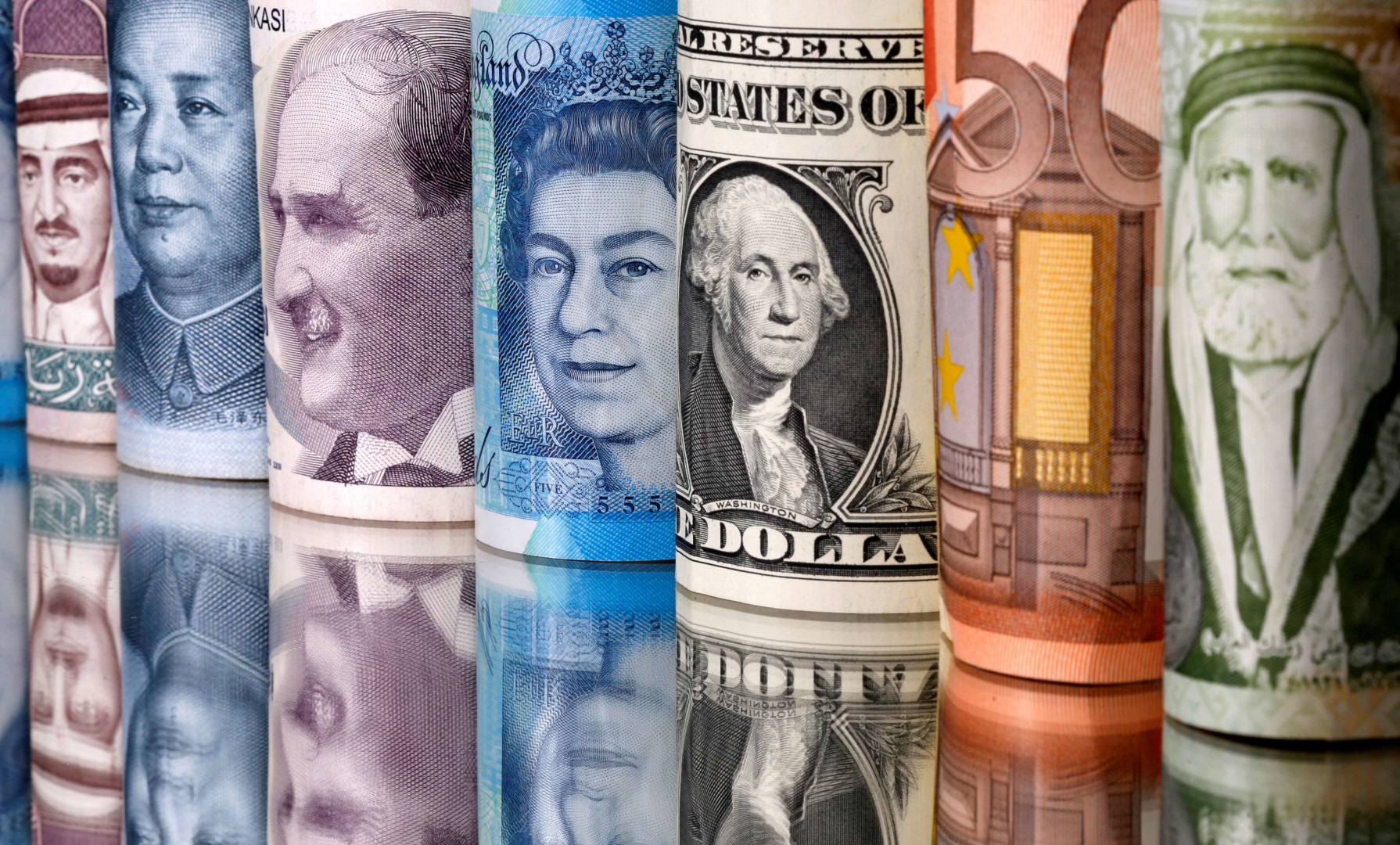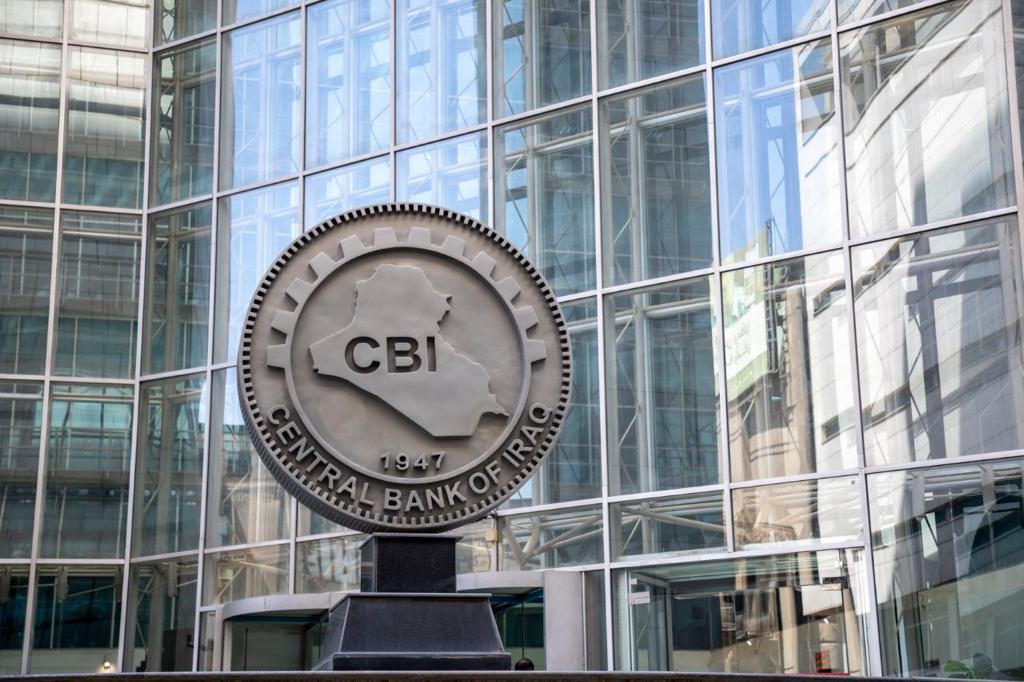Loss of confidence in Western banks and banks is absent.. How can the Iraqi government implement economic reforms?
 Since last January, Iraqi Prime Minister Muhammad Shia al-Sudani announced a number of financial and economic reforms in the country, including the activation of the electronic payment system, as a statement issued by his office announced work to activate the “electronic payment” system (Point of sales), Starting from the first of next June.
Since last January, Iraqi Prime Minister Muhammad Shia al-Sudani announced a number of financial and economic reforms in the country, including the activation of the electronic payment system, as a statement issued by his office announced work to activate the “electronic payment” system (Point of sales), Starting from the first of next June.
The government had confirmed the start of implementing the system while exempting its electronic equipment from taxes, in an attempt to encourage private companies to adopt this system, as Iraq is one of the countries lagging behind in implementing it.
Statistics
Specialists in economic affairs confirm that the application of the electronic payment system means the need to open bank accounts for all shopping centers, hospitals, factories, medical clinics, pharmacies, and others, in light of the country’s lack so far of the presence of branches of foreign international banks, as in the rest of the world, which may cause a great demand for banks. Civil and government that may not be able to keep up with the rising demand.
According to a study prepared by the Central Bank of Iraq in 2018, the percentage of Iraqis who have bank accounts does not exceed 3.2% of the country’s total population, and the number of government banks in Iraq is 7, in addition to 25 private commercial banks, 3 private Islamic banks, and 3 branches of Islamic banks. Foreign, according to the official website of the Central Bank.
As for the number of foreign commercial banks, it amounts to 16 banks belonging to Turkey, Lebanon, Iran and Jordan, taking into account that the Central Bank placed 7 of these banks under guardianship with the liquidation of their business in the country in 2020, according to the Central Bank’s website, with an office for a bank. The American “Citi” and another for the German “Commerz” bank, as they are based in the Babylon Hotel in Baghdad.
And the Central Bank of Iraq had excluded 4 local banks 3 months ago from the currency sale auction, due to accusations against these banks related to dollar smuggling and money laundering, as this coincided with the start of Iraq implementing the international money transfer system known as “SWIFT”.
With regard to the electronic sales system and the extent to which it can be implemented, Abdul Rahman al-Mashhadani, a professor of economics at the Iraqi University in Baghdad, explained that Iraq is still in the first stage of this experiment, and that the former Iraqi Prime Minister Haider al-Abadi had initiated this since 2017 without implementing it.
Speaking to Al-Jazeera Net, Al-Mashhadani revealed that the electronic sales system needs the presence of “Automated Exchange Units” (ATM) throughout Iraq, and that the total available of them does not exceed 1564 ATMs, most of them in Baghdad and Erbil, pointing out that the ATM is an integrated bank. Its business includes withdrawals, deposits and transfers, but the services it provides in Iraq are limited to cash withdrawals only.
Foreign banks
Regarding the reason for the European and American banks’ refusal to work in the country, Jamal Cougar, a member of the Parliamentary Finance Committee, spoke about the political situation. He went on to say that the coming period may witness the entry of foreign banks into the country. He explained that Iraq was classified in the past among the countries that were not friendly to the West, and was not subject to the international financial transfer system, and with the start of implementing this system and the electronic platform 4 months ago, it became ready to enter these foreign banks and financial companies.
In this direction goes Abd al-Rahman al-Mashhadani, who added that the main reason for the lack of international foreign bank branches is due to the security situation that the country has witnessed over the past two decades, warning at the same time that these banks are afraid of Iraq because of the indicators related to money laundering operations.
After observing the security stability in the past period and the steps and measures taken by the Central Bank to reduce money laundering through the electronic platform, Al-Mashhadani hopes that the Iraqi government will be able to attract Western banks.
For his part, financial analyst Mahmoud Dagher talked about another reason that may prevent government economic reforms from entering into force, represented by the instability of the Iraqi dinar in parallel markets, which makes merchants prefer to deal in Iraqi cash or dollars away from the electronic sales system, which may apply to The work of foreign banks in the country.
With regard to the possibility of local and foreign banks absorbing government economic reforms, Dagher explained – in his interview with Al-Jazeera Net – that in Iraq there are about 10,500 “electronic points of sale” (POS) spread in the commercial sectors, noting that despite the small number of these devices, they are It is still not used until now, given that there is a fear among merchants of tax prosecution, which requires a high banking culture.
Economic experts in Iraq unanimously agree that Iraqis are still facing the problem of trusting banks operating in the country, as well as a lack of banking awareness, which Mahmoud Dagher adopts by saying, “Iraqi banks and foreign bank branches have the ability to absorb hundreds of thousands of bank accounts in the country, however, The problem is the banking culture, which is still mediocre.
Al-Mashhadani partly agrees with this opinion, and adds that there is a deficiency in the banking culture due to the reluctance of Iraqis to deal with banks due to the lack of services they provide, suggesting that the government grant a “tax vacation” that extends for 5 years in order to encourage all commercial sectors to work with the electronic payment system.
On the other hand, economic journalist Nabil al-Najjar believes that Iraqi banks have been able, during the past five years, to develop the technical sector, making them ready for the electronic sales system, and that they still need to increase the number of ATMs in all cities.
And on the banking culture, he explained that the Iraqi government is still failing to educate on dealing with electronic cash, indicating – in his speech to Al-Jazeera Net – that the Iraqi government has what he described as a golden opportunity to adapt and encourage the Iraqi street to deal electronically, through many gradual measures by expanding the circle Imposing it on merchants and markets, and then the rest of the sectors, and otherwise, Iraq will remain dependent on paper money, with all the problems and defects it poses, as he put it.
Rawabetcenter.com


 Since last January, Iraqi Prime Minister Muhammad Shia al-Sudani announced a number of financial and economic reforms in the country, including the activation of the electronic payment system, as a statement issued by his office announced work to activate the “electronic payment” system (Point of sales), Starting from the first of next June.
Since last January, Iraqi Prime Minister Muhammad Shia al-Sudani announced a number of financial and economic reforms in the country, including the activation of the electronic payment system, as a statement issued by his office announced work to activate the “electronic payment” system (Point of sales), Starting from the first of next June. Based on the decision of the Council of Ministers and in light of the policy of the Central Bank of Iraq to encourage reliance on the national currency in financial transactions inside Iraq provided by the banking system and non-bank financial institutions, it was decided that the electronic financial services provided inside Iraq through (automated teller machines, points of sale devices , electronic payment gateway ) in the Iraqi dinar currency.
Based on the decision of the Council of Ministers and in light of the policy of the Central Bank of Iraq to encourage reliance on the national currency in financial transactions inside Iraq provided by the banking system and non-bank financial institutions, it was decided that the electronic financial services provided inside Iraq through (automated teller machines, points of sale devices , electronic payment gateway ) in the Iraqi dinar currency. Shafaq News / The American “Forbes” magazine stated that the US dollar is not the strongest currency in the world, but rather the Kuwaiti dinar, and with a big difference between them.
Shafaq News / The American “Forbes” magazine stated that the US dollar is not the strongest currency in the world, but rather the Kuwaiti dinar, and with a big difference between them. Information / Baghdad… On Thursday, the representative of the Patriotic Union of Kurdistan, Susan Mansour, pledged to resolve the problems between Baghdad and Erbil by approving the oil and gas law in the parliament, noting that patchwork solutions led to a delay in enacting the oil and gas law.
Information / Baghdad… On Thursday, the representative of the Patriotic Union of Kurdistan, Susan Mansour, pledged to resolve the problems between Baghdad and Erbil by approving the oil and gas law in the parliament, noting that patchwork solutions led to a delay in enacting the oil and gas law. Information / Baghdad… On Thursday, the security expert, Sabah Al-Agaili, described the movements of the US ambassador in Baghdad, Elena Romansky, as stinky, calling on the government and the Ministry of Foreign Affairs to neutralize these moves because they are inconsistent with international diplomatic norms.
Information / Baghdad… On Thursday, the security expert, Sabah Al-Agaili, described the movements of the US ambassador in Baghdad, Elena Romansky, as stinky, calling on the government and the Ministry of Foreign Affairs to neutralize these moves because they are inconsistent with international diplomatic norms. Today, the President of the Republic, Abd al-Latif Rashid, confirmed the imminence of approving the general budget, while receiving a delegation from the American Institute of Peace.
Today, the President of the Republic, Abd al-Latif Rashid, confirmed the imminence of approving the general budget, while receiving a delegation from the American Institute of Peace. Economy News _ Baghdad… Today, the Central Bank decided to use the local currency only in ATMs.
Economy News _ Baghdad… Today, the Central Bank decided to use the local currency only in ATMs.